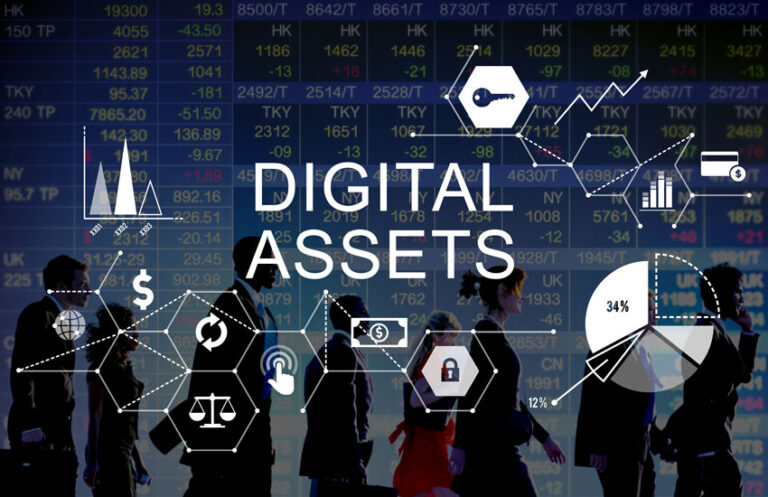Businesses working with digital assets face the dual challenge of managing innovation while responding to rapid shifts in the economic landscape. Inflation, regulation, and global market shifts are changing how companies think about growth, stability, and long-term planning. So, how are smart businesses adapting? By leaning into strategy, enhancing security, and preparing for a future that values resilience over risk.
One of the clearest signs of this shift is the growing importance of secure asset storage. As digital assets play a larger role in treasury strategies, more businesses are investing in protective tools. Using a cold storage wallet is no longer just for tech-savvy individuals. It’s now a fundamental part of responsible digital asset management at the organizational level. With security concerns constantly evolving, companies are taking proactive steps to safeguard their holdings and their reputations.
A Shift from Speculation to Stability
Just a few years ago, many businesses entered the crypto space driven by excitement and high returns. While that spirit hasn’t completely disappeared, there’s a noticeable move toward practicality. Now, leaders are more focused on sustainability, real-world use cases, and how digital assets can actually support broader business goals.
This means assessing risk more seriously and planning for longer time horizons. Instead of betting on the next big coin, businesses are exploring stable value strategies, crypto payments, and blockchain-based systems that can reduce costs or improve efficiency. The hype cycle might still attract attention, but seasoned businesses are learning to filter the noise and make calm, informed decisions.
Preparing for Regulation Without Panic
One of the biggest variables facing digital finance is the regulatory environment. Laws are evolving quickly, and no one has a crystal ball for what’s coming next. But waiting on the sidelines isn’t a viable option either.
The smartest businesses are taking action before regulations become mandatory. This includes creating internal policies that mirror expected compliance requirements, training staff, and keeping accurate financial records. Even basic steps like confirming counterparty identities or separating operational funds from reserves can make a big difference. By building regulatory readiness into their culture, companies avoid scrambling when the rules inevitably shift.
Financial Resilience Through Diversification
The old rule of not putting all your eggs in one basket applies just as well in digital finance as it does in traditional markets. Diversification continues to be one of the best tools for managing uncertainty. For crypto-savvy businesses, this might mean holding a mix of stablecoins, traditional fiat reserves, and other digital assets with different risk profiles.
It also means spreading out where and how assets are stored. Relying solely on one wallet or one exchange introduces a point of failure. Instead, companies are embracing multi-tiered strategies that include secure offline storage, trusted custodians, and dynamic access controls. This layered approach helps guard against theft, loss, and system failures while supporting flexibility.
The Rise of Digital Treasury Management
As digital assets become part of everyday business operations, finance teams are adapting their toolkits. Digital treasury management is an emerging field that blends traditional financial principles with crypto-specific practices. This includes monitoring liquidity, forecasting asset performance, and making decisions that align with overall business goals.
One growing trend is the adoption of software tools that track blockchain transactions in real time, offering improved transparency and audit readiness. These tools also help financial leaders better understand their exposure, allocate capital efficiently, and avoid costly errors. A strong digital treasury function is quickly becoming a key part of a future-proof financial team.
Security as a Business Imperative
For many businesses, digital asset security is no longer seen as just an IT issue. It’s a company-wide priority that requires clear policies, cross-functional training, and a culture of accountability. As more firms experience phishing attacks, internal fraud, and technical vulnerabilities, the need for robust systems becomes obvious.
That’s why investing in both people and technology is critical. Cold storage solutions, multi-signature approvals, and access limits are now standard practices for companies taking security seriously. Leadership teams are also involving finance and compliance departments in decisions about wallet architecture and access control. This holistic approach strengthens the company’s defenses while building trust among clients and partners.
Building Trust in an Uncertain Market
Reputation is everything in the world of digital finance. With so many scams and failed projects making headlines, businesses must work harder than ever to prove their legitimacy. One way to do that is by demonstrating clear values, sound risk management, and a commitment to transparency.
For example, publishing proof of reserves, conducting third-party audits, or offering real-time financial dashboards can show stakeholders that the business operates with integrity. When uncertainty is high, trust becomes a competitive advantage. Companies that focus on long-term credibility over short-term profits are the ones gaining traction.
Embracing Innovation with a Safety Net
Innovation is still at the core of digital finance. But smart businesses are learning that the best innovation happens within a framework of control. That means testing new ideas, launching pilot programs, and evaluating performance before scaling up.
Whether exploring tokenized assets, smart contracts, or blockchain-based logistics, forward-thinking teams are embracing experimentation while managing downside risk. With the right balance, innovation becomes a growth engine instead of a liability.
Final Thoughts
Uncertainty might feel uncomfortable, but it also creates space for reflection and improvement. Digital-first businesses that focus on fundamentals like strategy, security, and trust will be better prepared to handle whatever comes next.
As the digital asset economy continues to mature, companies that prioritize resilience over reaction will be the ones leading the way. And while the future may be unpredictable, the steps businesses take today can help shape a more stable and successful tomorrow.



